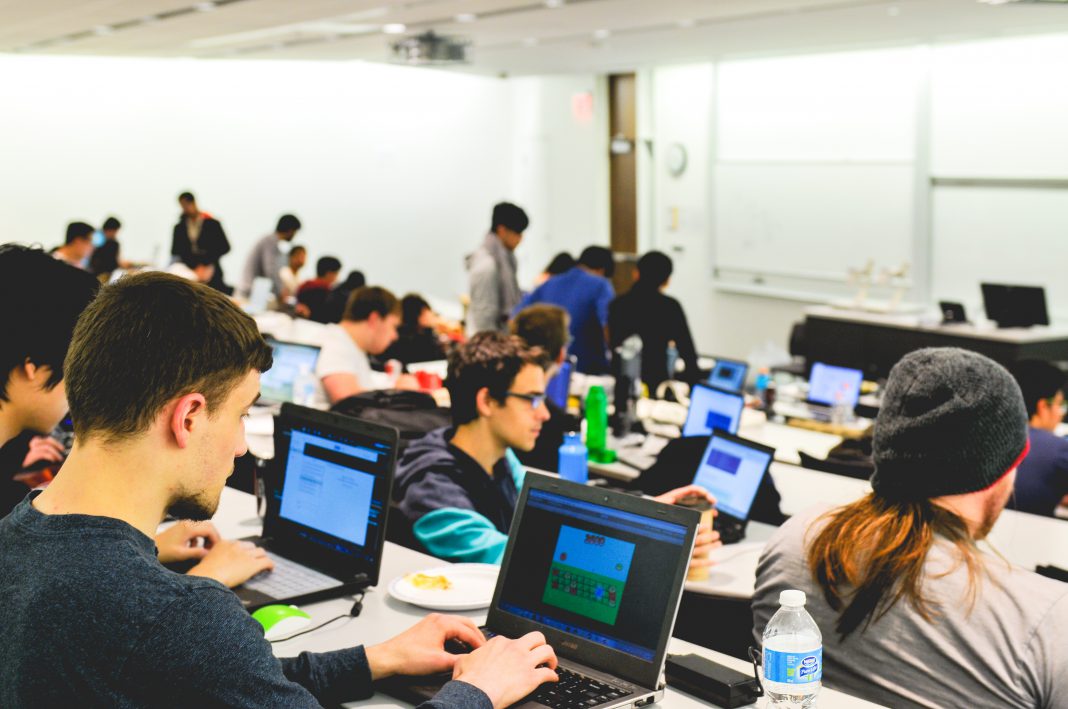The latest Waterloo Game Jam saw students and aspiring game developers from across Waterloo come together for a weekend of modding and coding. The Game Jam is a tri-annual event run through the Games Institute and aided by the the university’s Game Development Club, with this term’s event running from Oct. 28 to 30.
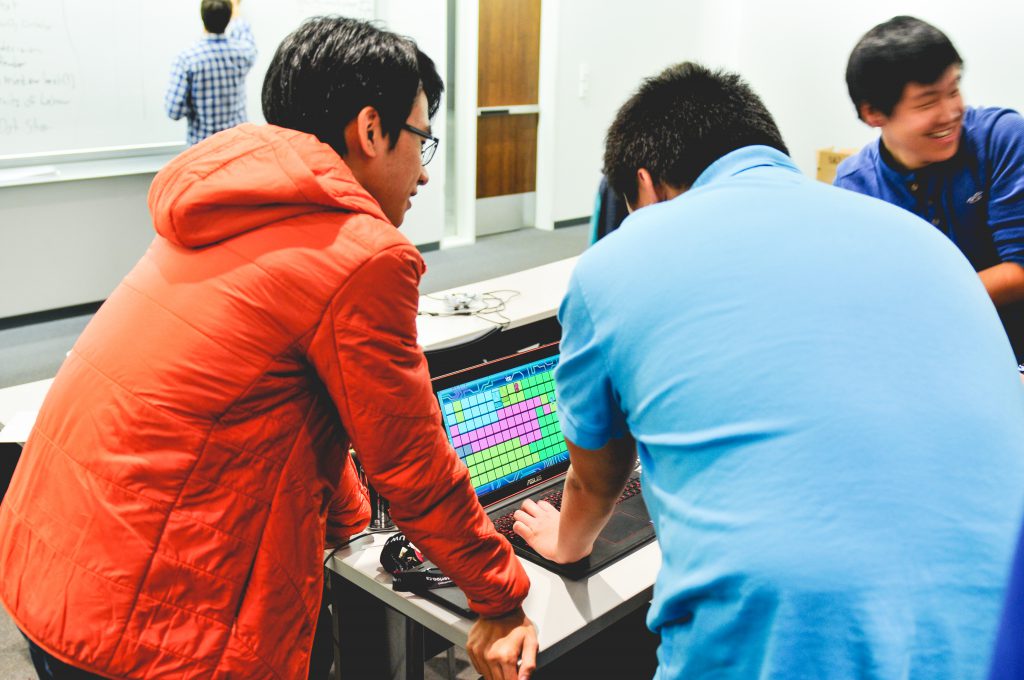
Alex Fleck, game designer at the Games Institute and an organizer for the Waterloo Game Jam, gave an overview of the environment at the jam.
“We’ve tried pretty hard to make any person that has an interest in games or making games feel welcome: the target audience is anyone that wants to learn about how games are made and then try their hand at it,” Fleck said.
In total, this term’s Game Jam had about 75 people, split into 16 teams.
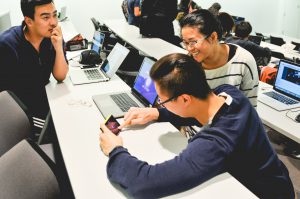
Waterloo Game Jam participants split into small teams and had the weekend to create a game. While many attendees had previous experience, especially those coming from the Game Development Club, there were also participants new to game development, hoping to learn the ropes as they went.
The teams worked over the three-day period to create their games of choice. On the last day, a showcase was held where the games were available to try out and show off. The offerings from the participants offered a variety of gaming genres over a range of formats, from typical mouse-and-keyboard format to VR-compatible to games available on Android.
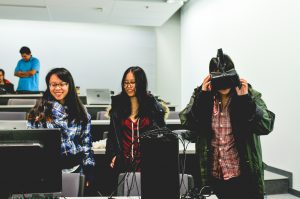
“The games that were created were very interesting. I’m normally impressed by the variety of what comes out of this kind of event,” Fleck said. “In this case, there was a VR rhythm game, a game about protecting an egg from incoming sperm, an audio-based survival horror game, and a goose simulator, all created on the same weekend.”
All of the games created over the weekend were available for the participants to try out, with a clear amount of effort and creativity put into each.
Awards were given to games that fit into special categories like “best played midnight at Halloween,” “best idea in progress,” and “most likely to be memed” (an award that, unsurprisingly, went to the goose simulation game). Winners were awarded, fittingly, with their own jars of jam.
Fleck offered suggestions for people interested in game design but lacking experience.
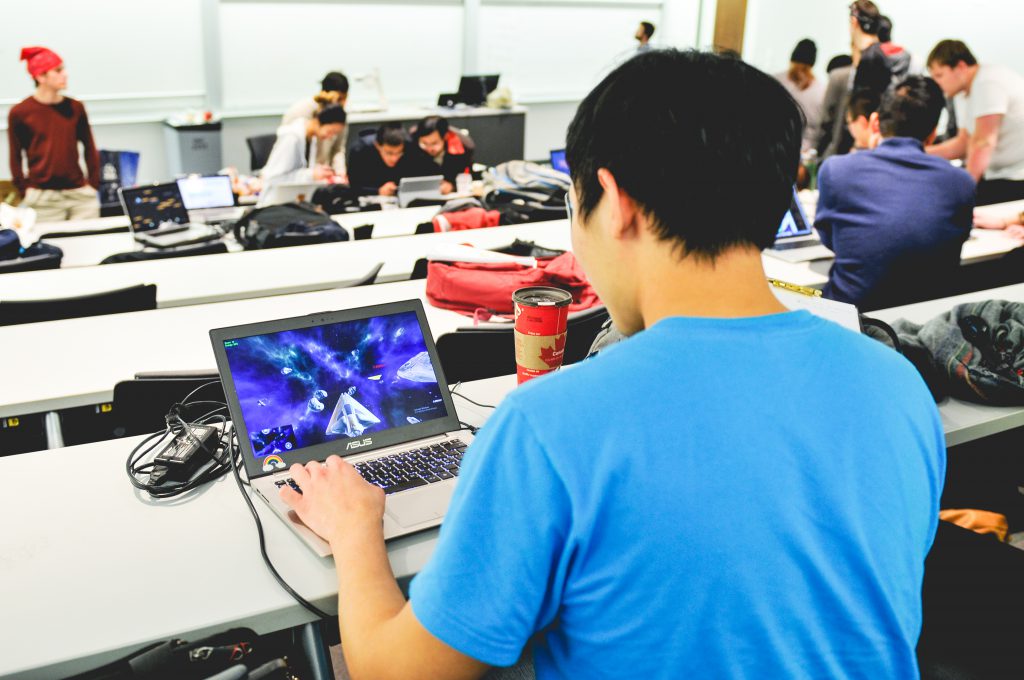
“If you’re on the fence about game creation, I’d say, at least on UW’s campus, that there are a few things you can try that won’t cost you a lot of time or effort to help you decide: come out to the Game Developer Club meetings at the Games Institute, Thursdays 6 to 9 p.m. at 175 Columbia St. W; attend events at the Games Institute; look up a game tool like Twine or Super Mario Maker. Spend some time with one of those and you will start to understand what goes into making games,” Fleck said.
“Like anything that requires thought, creativity, and technical skill, game creation can be incredibly rewarding work. I think games and the way they encourage system-oriented thinking are valuable as learning tools, as great art, and as fun. Getting involved in making them is something I’d recommend to anyone.”
























